Lab mentors
Below is a partial list of mentors at Seattle Children’s Research Institute, the University of Washington, Benaroya Research Institute and Fred Hutch Cancer Center; and links to their lab websites and concepts. Faculty from these four institutions who are not listed below may be eligible to participate in the program provided that they are prepared to mentor a postdoctoral scholar who is focused on pediatric therapeutics. Please email us if you are interested in working with a mentor who is not listed below.
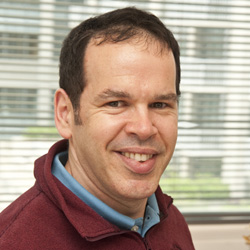 Adrian M. Piliponsky, PhD
Adrian M. Piliponsky, PhD
Seattle Children’s Research Institute
The Piliponsky Lab studies inflammatory responses involving mast cells and myeloid cells.
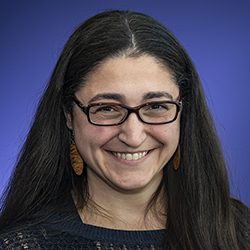 Alexis Kaushansky, PhD (Invent@SC Associate Director)
Alexis Kaushansky, PhD (Invent@SC Associate Director)
Seattle Children’s Research Institute
The Kaushansky Lab works with the pathogens of infectious diseases like malaria that infect hundreds of millions of people every year.
Invent Concept: Development of devices to manufacture vaccines in mosquitoes
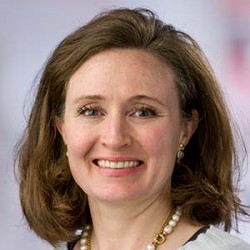 Aude G. Chapuis, MD *
Aude G. Chapuis, MD *
Fred Hutch Cancer Center
The Chapuis Lab employs a translational pipeline to improve T cell receptor (TCR) gene-engineered immunotherapy.
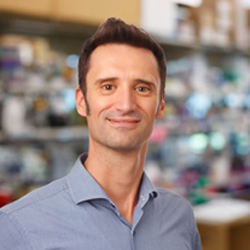 Brock Grill, PhD *
Brock Grill, PhD *
Seattle Children’s Research Institute
The goal of the Grill Lab is to decipher signaling networks that affect neuron development and engineered behaviors. The lab focuses on molecular players and cellular processes involved in neurodevelopmental disorders, neurodegenerative disease and opioid drug addiction.
Invent Concept: Identifying behavioral genetic regulators of opioid drug responses
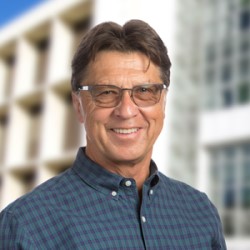 Bruce Torbett, PhD
Bruce Torbett, PhD
Seattle Children’s Research Institute
The Torbett Lab studies HIV entry, evolution, and assembly at the genomic, biochemical and structural levels, as well as human hematopoietic stem cell resistance of HIV lentiviral vector entry.
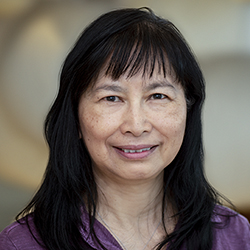 Carol H. Miao, PhD
Carol H. Miao, PhD
Seattle Children’s Research Institute
The Miao Lab is pursuing safer, more effective treatments for hemophilia. Our current work focuses on innovative gene therapy approaches.
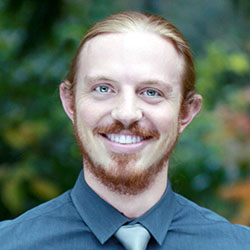 Cole DeForest, PhD
Cole DeForest, PhD
University of Washington
The DeForest Group seeks to integrate the governing principles of rational design with fundamental concepts from material science, synthetic chemistry, and stem cell biology to conceptualize, create, and exploit next-generation materials to address a variety of health-related problems. They are currently interested in the development of user-programmable biomaterials for assaying dynamic stem cell fate and tissue engineering applications, controlled therapeutic delivery to combat disease, and new tools for enhanced proteomic studies.
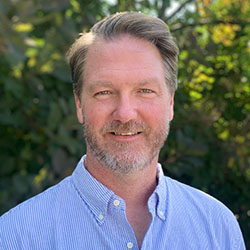 Damon Page, PhD
Damon Page, PhD
The Page Lab focuses on unraveling the molecular and cellular mechanisms underlying neurodevelopmental disorders, such as autism and intellectual disability, through preclinical neurogenetic and translational research.
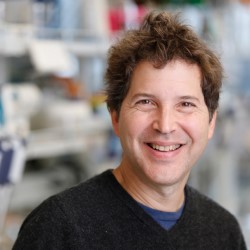 David Baker, PhD *
David Baker, PhD *
University of Washington
The Baker Lab seeks to understand the fundamental principles underlying protein structure and function, to encode these principles in the Rosetta computer program, and to use them to create a new world of de novo designed proteins to address 21st-century challenges in health and technology.
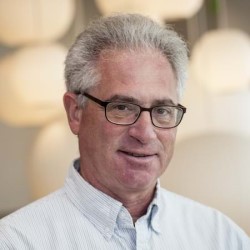 David R. Beier, MD, PhD
David R. Beier, MD, PhD
Seattle Children’s Research Institute
The Beier Lab uses genetic analysis in model systems as a means to understand human biology and disease, and identifies genes that contribute to human disease and developmental abnormalities.
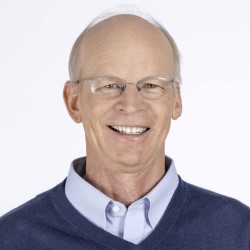 David J. Rawlings, MD *
David J. Rawlings, MD *
Seattle Children’s Research Institute
The interests of the Rawlings Lab include altered lymphoid B cell development and signaling leading to immunodeficiency, autoimmunity or lymphoid malignancies, and the development of gene therapy for primary immune deficiency diseases.
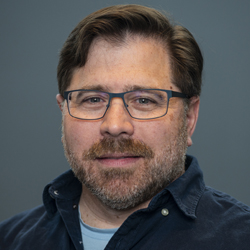 Don Sodora, PhD
Don Sodora, PhD
Seattle Children’s Research Institute
Work in the Sodora Lab focuses on focuses on two principal areas of HIV research: HIV transmission and HIV-induced disease and immune factors that impact progression to AIDS. Collectively, these research strategies are designed to produce novel vaccine approaches and immune therapies that will decrease the spread of HIV and/or prevent disease progression in HIV-infected people.
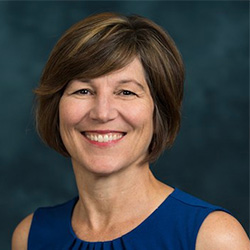 Elizabeth Lawlor, MD, PhD
Elizabeth Lawlor, MD, PhD
Seattle Children’s Research Institute
The Lawlor Lab focuses on Ewing sarcoma, an aggressive bone and soft tissue tumor that peaks in adolescence and for which new cures are needed.
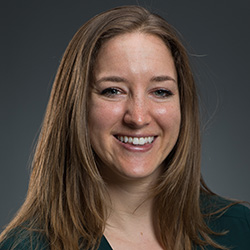 Elizabeth Nance, PhD
Elizabeth Nance, PhD
University of Washington
The Nance Lab develops nano-based therapeutics that can achieve region- and cell-specific targeting in the brain for improved neuroprotection in a variety of neonatal and pediatric brain disorders.
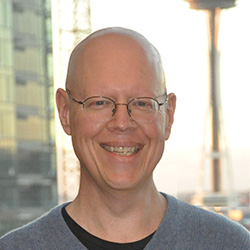 Eric E. Turner, MD, PhD
Eric E. Turner, MD, PhD
Seattle Children’s Research Institute
Dr. Eric Turner’s Lab is defining brain pathways underlying motivation, emotion and addiction, and mapping brain circuits in mice.
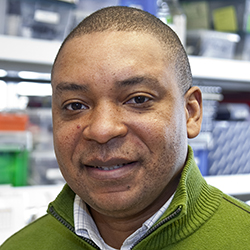 Franck K. Kalume, PhD (Invent@SC Associate Director)
Franck K. Kalume, PhD (Invent@SC Associate Director)
Seattle Children’s Research Institute
The Kalume Lab investigates the mechanisms that drive epilepsy and related conditions, and pursues improved treatments for affected children and adults.
Invent Concept: Viral-based and non-viral-based gene replacement therapies in a pre-clinical model of Dravet syndrome
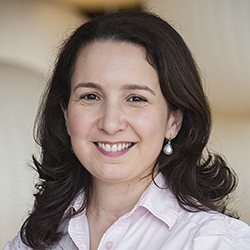 Ghayda Mirzaa, MD
Ghayda Mirzaa, MD
Seattle Children’s Research Institute
The Mirzaa Lab is pinpointing the genes that contribute to many neurodevelopmental disorders. This work is opening the door to new treatments that could modify or fix the errors in these genes, addressing the underlying causes of disorders instead of treating only their symptoms.
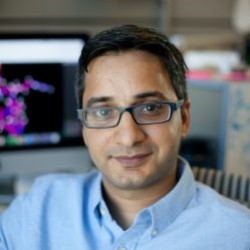 Gaurav Bhardwaj, PhD *
Gaurav Bhardwaj, PhD *
University of Washington
The Bhardwaj Lab is developing computational and experimental tools for high-throughput design of peptide-based therapeutics.
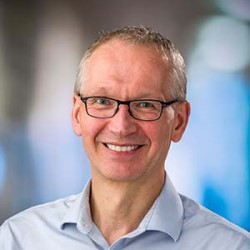 Hans-Peter Kiem, MD, PhD *
Hans-Peter Kiem, MD, PhD *
Fred Hutch Cancer Center
The Kiem Lab studies cell and gene therapy with a particular interest in the biology of blood and marrow stem cells and the development and use of novel gene therapy and genome editing technologies for ex vivo and in vivo applications. The overall goal is to develop better stem cell transplantation and cell and gene therapy treatments for patients with genetic, infectious, and malignant diseases.
Invent Concept: In vivo gene therapy for Fanconi anemia
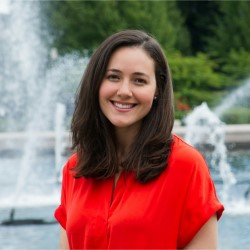 Heather Gustafson, PhD
Heather Gustafson, PhD
Seattle Children’s Research Institute
The Gustafson Lab develops novel technology platforms that target and alter macrophage phenotypes.
Invent Concept: Development of a novel clinical biomarker and companion intervention that can predict and reverse severe CAR toxicity, non-response, and relapse prior to CAR therapy
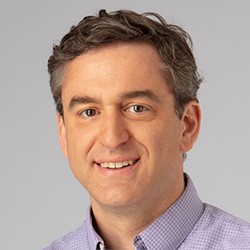 James T. Bennett, MD, PhD
James T. Bennett, MD, PhD
Seattle Children’s Research Institute
The Bennett Lab investigates the contribution of post-zygotic mutations on human development and birth defects, with a focus on vascular malformations. We also study the impact of rapid diagnostic genomic sequencing in management of children in intensive care units.
Invent Concept: Identification of paracrine signaling factors in mosaic vascular malformations
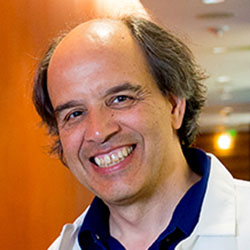 Jan-Marino (Nino) Ramirez, PhD
Jan-Marino (Nino) Ramirez, PhD
Seattle Children’s Research Institute
The Ramirez Lab investigates brain functions in order to develop new ways to treat – and potentially cure – neurological disorders.
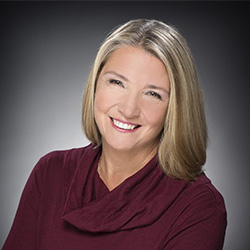 Jane Buckner, MD *
Jane Buckner, MD *
Benaroya Research Institute
The Buckner Lab focuses on identifying the underlying mechanisms by which the adaptive immune response to self-antigens becomes pathogenic in the setting of human autoimmune disease.
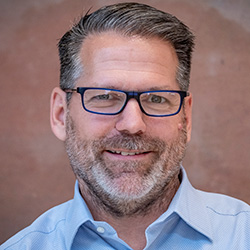 Jason Scott Debley, MD, MPH
Jason Scott Debley, MD, MPH
Seattle Children’s Research Institute
The Debley Lab is engaged in an array of translational research investigating the role of the airway epithelium in childhood asthma.
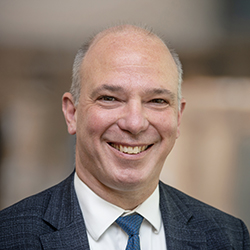 Jeffrey G. Ojemann, MD
Jeffrey G. Ojemann, MD
Seattle Children’s Research Institute
The Ojemann Lab is interested in using electrocorticography to answer basic neuroscience questions as well as to develop tools for clinical and rehabilitative application.
Invent Concept: Engineered neuroplasticity for restoration of function
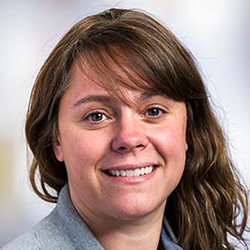 Jennifer E. Adair, PhD *
Jennifer E. Adair, PhD *
Fred Hutch Cancer Center
The Adair Lab uses a combination of cell biology, molecular biology, chemistry, engineering, nanomedicine and bioinformatics to develop new gene therapy treatments for many different diseases, including cancer. Our ultimate goal is to develop safe, cost-effective, and clinically relevant applications for gene therapy that can be implemented worldwide.
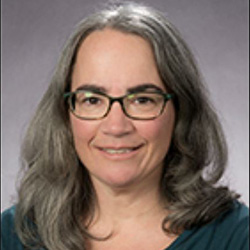 Jessica Hamerman, PhD
Jessica Hamerman, PhD
Benaroya Research Institute
Research in the Hamerman Lab focuses on understanding the process of inflammation and how it is regulated by specific subsets of myeloid cells. We study monocytes and macrophages, initiators of inflammation, and dendritic cells (DCs), initiators of adaptive immunity.
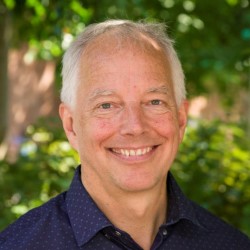 James M. Olson, MD, PhD (Invent@SC Director)
James M. Olson, MD, PhD (Invent@SC Director)
Seattle Children’s Research Institute
The Olson Lab focuses on discovering novel therapeutics for pediatric cancers and, more broadly, on discovering protein/peptide therapeutics for a wide range of pediatric diseases.
Invent Concept:
- Tumor Glue
- Engineering CAR T cells to secrete bispecific antibodies to enhance efficacy
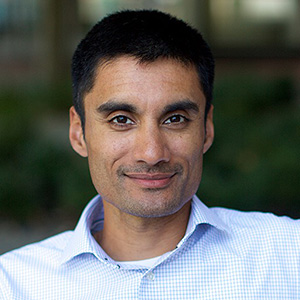 Jay F. Sarthy, MD, PhD
Jay F. Sarthy, MD, PhD
Seattle Children’s Research Institute
Dr. Jay Sarthy's lab focuses on understanding the molecular mechanisms underlying high-risk malignancies, with an emphasis on epigenetic regulation and chromatin dynamics. The Sarthy Lab integrates cutting-edge genomics technologies with novel therapeutics to elucidate pathways involved in oncogenesis. The ultimate goal of the lab is to identify effective therapeutic strategies that mitigate toxicities to improve outcomes for children with cancer.
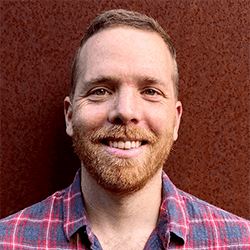 John Ray, PhD
John Ray, PhD
Benaroya Research Institute
The Ray Lab focuses on understanding how genetic risk for autoimmune diseases guides immune responses, which will inform the development of personalized therapies that treat or prevent autoimmunity.
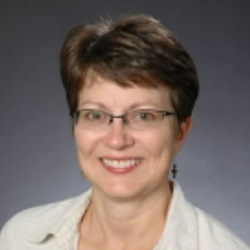 Karen Cerosaletti, PhD
Karen Cerosaletti, PhD
Benaroya Research Institute
The Cerosaletti Lab is engaged in translational research to identify key mechanisms in the development of autoimmunity and allergy.
Invent Concept: Targeting TSLP in eosinophilic esophagitis (EOE) and asthma
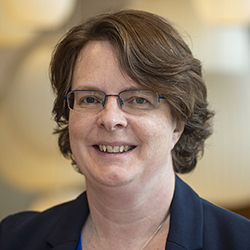 Kathleen J. Millen, PhD
Kathleen J. Millen, PhD
Seattle Children’s Research Institute
The Millen Lab is interested in the genetic and developmental basis of structural birth defects of the brain both in humans and animal models. We have a specific interest in malformations of the cerebellum.
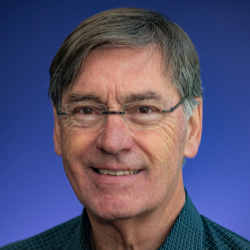 Kenneth D. Stuart, PhD
Kenneth D. Stuart, PhD
Seattle Children’s Research Institute
Research in the Stuart Lab is focused on protozoan pathogens and the diseases that they cause. These include malaria, human African trypanosomiasis (sleeping sickness), Chagas disease and leishmaniasis. The lab investigates molecular and cellular processes of the parasites and immune responses to infection and vaccines in order to develop drugs, vaccines and diagnostics that are needed.
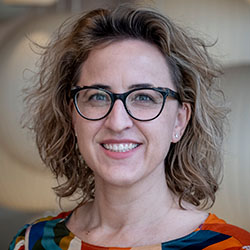 Kimberly Aldinger, PhD
Kimberly Aldinger, PhD
Seattle Children’s Research Institute
The Aldinger Lab studies the genetics and development of pediatric neurological disorders. The aim of this work is to understand how genetic and cellular changes lead to specific clinical symptoms, with the hope that a better understanding of disease pathways will lead to more effective and targeted therapies for pediatric neurogenetic disorders.
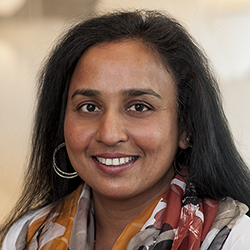 Lakshmi Rajagopal, PhD
Lakshmi Rajagopal, PhD
Seattle Children’s Research Institute
The Rajagopal Lab primarily studies group B Streptococcus; these are bacteria that are transmitted from pregnant mothers to infants and leads to preterm births, stillbirths, or neonatal infections. GBS also causes infections in adults. The lab utilizes multiple in vitro approaches along with animal models, with the goal being to identifying novel vaccine or therapeutic measures.
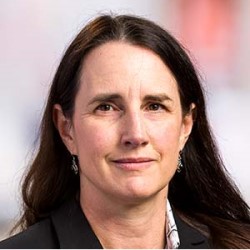 Marie Bleakley, MD, PhD, MMSc **
Marie Bleakley, MD, PhD, MMSc **
Fred Hutch Cancer Center
The Bleakley Lab is developing new therapies and transplantation strategies to separate the beneficial graft-versus-leukemia effect (GVL) from potentially dangerous graft-versus-host-disease (GVHD), in order to improve the outcomes of patients with high-risk leukemia.
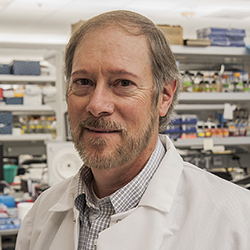 Mark W. Majesky, PhD
Mark W. Majesky, PhD
Seattle Children’s Research Institute
The Majesky Lab uses molecular biological and developmental genetic approaches to address fundamental questions in development and differentiation of blood vessels. Current projects use both mouse and avian models. One major research focus is on vascular stem and progenitor cells that reside in the adventitial layer of artery wall.
Invent Concept: Ductal Paint
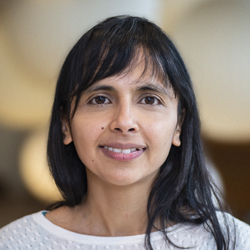 Mridu Acharya, PhD
Mridu Acharya, PhD
Seattle Children’s Research Institute
The Acharya Lab studies how immune cells integrate signals from pathogens and their environment to produce effective immunity against pathogens while maintaining tolerance to self-derived antigens.
Invent Concept: Nanoparticle immunogens targeting specific receptors on immune cells
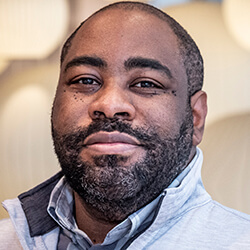 Myron Evans II, PhD
Myron Evans II, PhD
Seattle Children’s Research Institute
The Evans Lab is working to better understand why children get brain tumors and which mutations drive those tumors. Our ultimate goal is to make discoveries that inform a new wave of brain tumor treatments that are more targeted than today’s therapies, with fewer side effects.
Invent Concept: Enhancing efficacy of HER2 CAR-T by epigenetic targeting
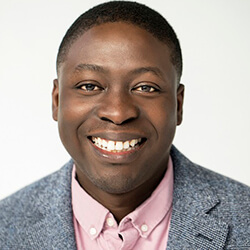 Nana Minkah, PhD
Nana Minkah, PhD
Seattle Children’s Research Institute
The Minkah Lab investigates malaria parasite infection of the liver, with the goal of informing the rational design of highly efficacious malaria vaccines and immune-directed therapies against hepatic maladies.
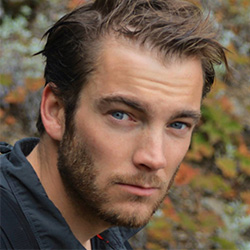 Nathan Baertsch, PhD
Nathan Baertsch, PhD
Seattle Children’s Research Institute
The Baertsch Lab focuses on understanding cellular and network mechanisms that allow the brain to generate and coordinate rhythmic activity. Recent work has focused specifically on characteristics of the breathing control network that promote dynamic network activity and behavioral flexibility.
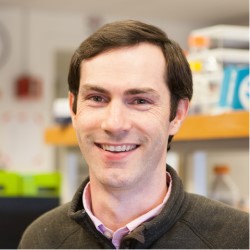 Neil King, PhD *
Neil King, PhD *
University of Washington
Proteins are nature’s building block of choice for the construction of “molecular machines,” stable yet dynamic assemblies with unparalleled abilities in molecular recognition and logic. The King Lab incorporates these features into the design of functional protein-based nanomaterials with the goal of creating new opportunities for the treatment and prevention of disease.
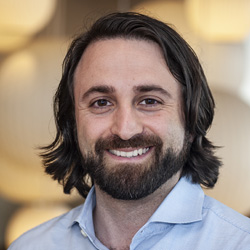 Nicolas A. Vitanza, PhD
Nicolas A. Vitanza, PhD
Seattle Children’s Research Institute
The Vitanza Lab searches for new treatments that are both safe and curative for aggressive pediatric brain and spinal cord tumors, such as diffuse intrinsic pontine glioma (DIPG), diffuse midline glioma H3 K27M-mutant (DMG), and atypical teratoid rhabdoid tumor (ATRT). Dr. Vitanza particularly focuses on translating first-in-human CAR T cell clinical trials.
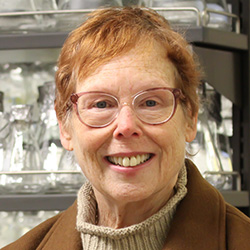 Nora Disis, PhD
Nora Disis, PhD
University of Washington
The UW Cancer Vaccine Institute is interested in the discovery of new immunologic targets in solid tumors for the development of vaccine and cellular therapy for the treatment and prevention of common malignancies. The institute has several projects focused on modulating the tumor immune environment with both drugs and via manipulation of the gut microbiome. In addition, it evaluates the use of the immune system to aid in the diagnosis of cancer and develop novel assays and approaches to quantitate and characterize human immunity.
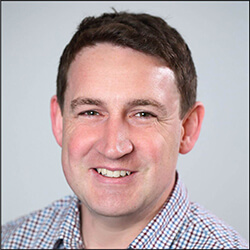 Oliver Harrison, PhD
Oliver Harrison, PhD
Benaroya Research Institute
The Harrison Lab investigates the molecular mechanisms of how T and B cell responses barrier tissue integrity and repair, and how this goes awry during disease. Their studies revolve around understanding the mechanisms controlling function of adaptive immune cells within barrier tissues, primarily the skin and the gut.
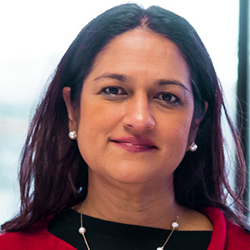 Rhea Coler, MSc, PhD
Rhea Coler, MSc, PhD
Seattle Children’s Research Institute
The Coler Lab focuses on translational research - vaccine development and host-directed therapies against epidemic and pandemic infectious diseases with the goal of developing solutions to control tuberculosis, nontuberculous mycobacteria and positive strand RNA viruses.
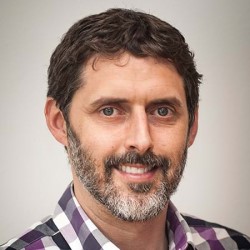 Richard G. James, PhD *
Richard G. James, PhD *
Seattle Children’s Research Institute
The James Lab is focused on engineering human plasma cells to produce a living therapeutic for long-term protein delivery.
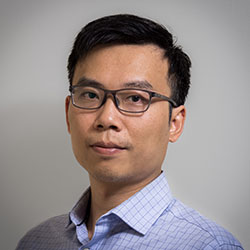 Shan Lin, PhD
Shan Lin, PhD
Seattle Children’s Research Institute
The Lin Lab is interested in identifying novel therapeutic targets for difficult-to-treat leukemia and exploiting programed cell death pathways to improve cancer treatment.
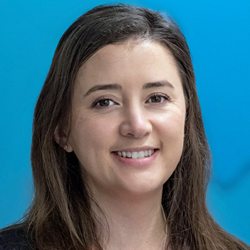 Shannon Oda, PhD
Shannon Oda, PhD
Seattle Children’s Research Institute
The Oda Lab develops engineering strategies that enable T cells to overcome obstacles in the tumor microenvironment and mount a more powerful, durable and sustained attack on cancer cells.
Invent Concept: Development of engineered proteins to enhance cell therapy efficacy and catalyze an endogenous anticancer immune response
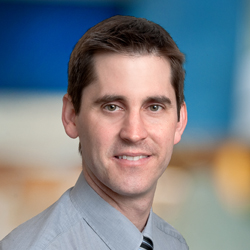 Shaun W. Jackson, MB ChB, PhD
Shaun W. Jackson, MB ChB, PhD
Seattle Children’s Research Institute
The Jackson Lab studies the immune mechanisms underlying the development of systemic autoimmune diseases, focusing in particular on the role of B cells in systemic lupus erythematosus (SLE). The lab uses various chimeric and genetic knock-in murine strains to model the biology of human autoimmune diseases.
Invent Concept: Targeted depletion of plasma cells in HLA sensitized end stage kidney disease (ESKD) patients awaiting organ transplantation
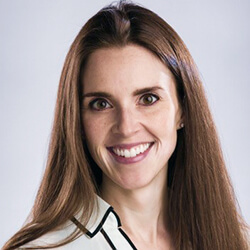 Siobhan Pattwell, PhD
Siobhan Pattwell, PhD
Seattle Children’s Research Institute
The Pattwell Lab studies genes and processes involved in neurodevelopment and how they are hijacked in cancer.
Invent Concept: Cellular Immunotherapy targeting NTRK2 mutant cancers
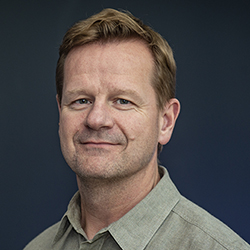 Stefan Kappe, PhD
Stefan Kappe, PhD
Seattle Children’s Research Institute
The Kappe Lab is focused on understanding the complex biology of the malaria parasite and the immune responses to infection, using this information to design transformational interventions that will help win the fight against malaria.
Invent Concept: Improving live-attenuated malaria vaccine efficacy with CRISPR/Cas constructed-strains that manipulate innate immune responses
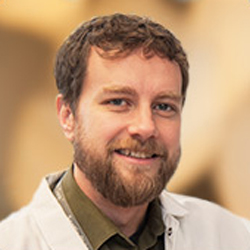 Stephen E.P. Smith, PhD
Stephen E.P. Smith, PhD
Seattle Children’s Research Institute
The SEPS Lab is working to uncover what the gene variations that contribute to autism have in common.
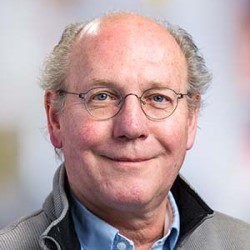 Stephen Tapscott, MD, PhD ***
Stephen Tapscott, MD, PhD ***
Fred Hutch Cancer Center
The Tapscott Lab studies gene transcription in a chromatin context in normal development and disease, with special emphasis on the molecular mechanisms of cell specification and differentiation.
Invent Concept (Multi-PI): Pharmacologically modulating complement C4 to limit schizophrenia
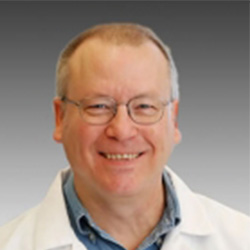 Steven F. Ziegler, PhD
Steven F. Ziegler, PhD
Benaroya Research Institute
The Ziegler Lab focuses on the factors that control normal immune regulation, as well as those that contribute to disease development and progression.
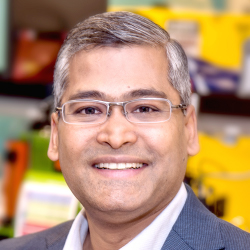 Surojit Sarkar, PhD
Surojit Sarkar, PhD
Seattle Children’s Research Institute
The Sarkar Lab is finding ways to help the immune system remember cancer and attack it if it relapses.
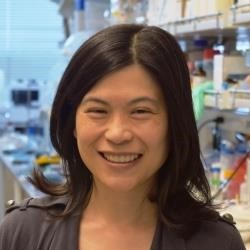 Suzie Pun, PhD *
Suzie Pun, PhD *
University of Washington
The Pun Lab develops materials for biomedical applications, with a particular focus on drug delivery. Current application areas include cancer therapy, trauma, CNS disorders and kidney disease.
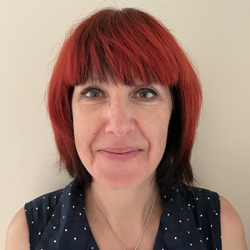 Tanya Parish, PhD
Tanya Parish, PhD
Seattle Children’s Research Institute
The Parish Lab focuses on understanding the biology of the global pathogen Mycobacterium tuberculosis and discovering and developing novel drugs for tuberculosis that are effective at curing drug-sensitive and drug-resistant tuberculosis.
Invent Concept: Development of novel drugs for mycobacterial infections
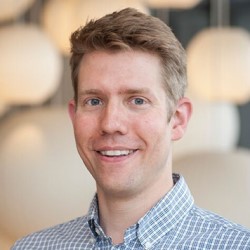 Timothy Cherry, PhD
Timothy Cherry, PhD
Seattle Children’s Research Institute
The Cherry Lab investigates how the visual system develops, and how genetic variations contribute to blindness and other visual disorders.
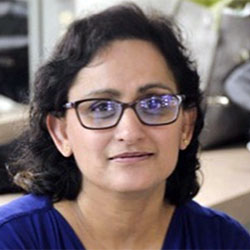 Vandana Kalia, PhD
Vandana Kalia, PhD
Seattle Children’s Research Institute
The Kalia Lab studies how immune cells fend off disease and makes discoveries that help improve cancer immunotherapies.
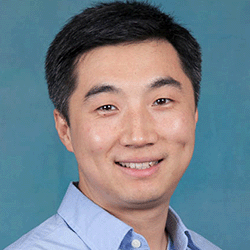 Xiaohu Gao, PhD
Xiaohu Gao, PhD
University of Washington
The Gao Lab integrates molecular biology, chemistry, molecular engineering and nanotechnology methodologies to develop new drugs and drug delivery systems targeting a spectrum of diseases, including cancer and infectious diseases.
* Founder of one or more biotech companies in the past.
** Technology from this mentor’s lab has been out-licensed to a biotech company.
*** Led extensive in-licensing process for a startup biotech company.
Biotech mentors and advisors
Each Invent at Seattle Children’s Postdoctoral Scholar will have a biotech mentor to complement laboratory and clinical mentorship. Biotech mentors will help scholars understand what needs to be included in a data package that will be presented to potential investors, when technology is mature enough to “socialize” with potential future partners, what is involved in starting biotech companies or licensing technologies to existing companies, and other information that comes from experience and is typically not available in traditional academic settings.
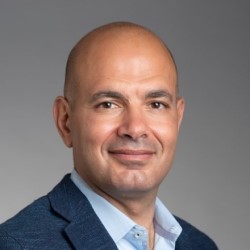 Adel Nada, Co-founder, President and CEO
Adel Nada, Co-founder, President and CEO
Adel Nada is co-founder and chief executive officer of GentiBio. Prior to joining GentiBio, Nada was the chief medical officer of Casebia Therapeutics, where he worked on advancing engineered regulatory T cell (Tregs) therapeutics. In the past, Nada has held executive positions in various biotech and pharmaceutical companies, including vice president at Intellia Therapeutics and Caladrius Biosciences, and various senior positions directing clinical development at Baxter and Abbott. He successfully led translational immunology programs over past 15 years for experimental and approved therapies, spanning small and large molecules and engineered immune cell products, including Tregs products. Nada received his medical degree from Alexandria University in Egypt and his master’s degree in clinical research from the Pharmacology Dept. at Rush University in Chicago, where he also held an academic position. Nada completed advanced studies in drug development at UCSF and University of Basel before becoming a member of the Faculty of Pharmaceutical Medicine in the UK. Prior to joining the industry, Nada trained in surgery and internal medicine and practiced for 10 years in Chicago.
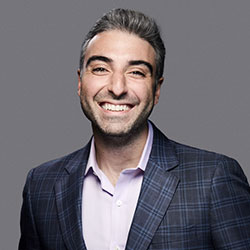 Artavazd Arumov, Vice President
Artavazd Arumov, Vice President
Artavazd Arumov, PhD joined the Qiming US team in May 2021 and is based in the Cambridge, MA office.
Prior to joining Qiming US, Artavazd held numerous roles across the life sciences. He led business development and therapeutic strategy for early-stage biotech Redesign Science. Prior to Redesign Science, he completed doctorate training at the University of Miami’s Miller School of Medicine. He also spent time in clinical research at Memorial Sloan Kettering Cancer Center, where he was responsible for the end-to-end management and operations of a portfolio of breast cancer sponsored and investigator initiated phase I/II clinical trials.
Artavazd completed his PhD in Cancer Biology at the University of Miami Miller School of Medicine’s Sylvester Comprehensive Cancer Center. His research focused on the development and advancement of novel precision therapeutics for use in lymphoma and the study of fundamental drug resistance mechanisms. He currently serves as an entrepreneur in residence for U Innovation’s Coulter Center for Translational Research. He also holds a B.S. in Biology from Brooklyn’s St. Francis College.
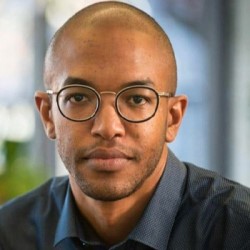 Cameron Pitt, Chief Business Officer
Cameron Pitt, Chief Business Officer
Cameron Pitt, PhD, is a cancer biologist turned venture capital investor and biotech co-founder. He joined Quanta Therapeutics in April 2020 as chief business officer, leading operational strategy and business transactions. Previously as a principal at Sofinnova Investments, he led the Series A in formation of Quanta to build an allosteric discovery platform to target previously undruggable driver oncogenes. He has raised $92 million in VC and strategic financings for the company from launch to support advancement into the clinic. Prior to joining Sofinnova, he was an investment professional at Versant Ventures and focused on early-stage therapeutics and platform company building, particularly in oncology, immunology and fibrosis. He managed operations of several biotech companies and academic programs associated with Versant’s discovery engines, Highline Therapeutics and Inception Sciences.
During his PhD, Pitt worked with Dr. Frank McCormick on new strategies targeting Ras in cancer, and also interned in Translational Oncology at Genentech. He received his PhD in biomedical sciences at UCSF as an NSF Fellow and inaugural UCSF Discovery Fellow. He earned his BS with honors in biology from Stanford University and was awarded the Firestone Medal, Stanford’s top honor for undergraduate research. Originally from the Washington DC area, Pitt is also a past fellow of the NIH Intramural Research Training Award program.
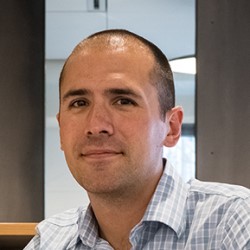 Colin Correnti, Co-founder and Vice President for Protein Therapeutics
Colin Correnti, Co-founder and Vice President for Protein Therapeutics
Dr. Colin Correnti is a biochemist and structural immunologist who specializes in antibody discovery and characterization, protein design and biophysics and therapeutic development. Correnti received his PhD in biochemistry from the University of Washington, where he trained in the laboratory of Roland Strong and studied immunology. He has over 12 years of experience developing and applying mammalian expression technologies. As a senior scientist in Jim Olson’s lab at the Fred Hutchinson Cancer Center, he led a highly productive mammalian protein expression core that supported dozens of collaborative projects across the University of Washington and the center.
More recently he has led multiple immunotherapy drug discovery efforts that involve antibody discovery and engineering for CAR-T cell and bispecific therapies and is founding member of Link Immunotherapeutics, along with his Fred Hutchinson colleagues Chris Mehlin, Ashok Bandaranayake and Jim Olson. Correnti joined the Link team as vice president of Protein Therapeutics in 2021 and leads bispecific and multispecific discovery. Correnti is an inventor on multiple patent applications and has a thorough understanding of patent strategies and is a passionate mentor. He would be an ideal fit for scholars looking to become engaging scientists that hope to share their ideas with private fundraisers or venture investors.
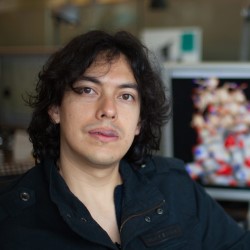 Daniel-Adriano Silva, CEO and Co-founder
Daniel-Adriano Silva, CEO and Co-founder
Daniel-Adriano Silva, PhD, is a biochemist, entrepreneur, and expert in de novo protein design. He completed his studies at UNAM (Mexico) and was a senior postdoctoral fellow at David Baker's lab (2013-2018). Silva has authored multiple publications in high-impact peer-reviewed journals and holds several patents.
Among his accomplishments, he was the principal inventor and architect of the Neoleukin platform for de novo protein design and NL-201, the first de novo protein to reach clinical trials. He was a co-founder of Neoleukin Therapeutics and served as vice president and head of research until March of 2021. Currently, Silva is the CEO and co-founder of Monod Bi in Seattle, an emerging company devoted to developing paradigm-shifting de novo protein biosensor and reporter proteins. In addition, he also serves as a translational advisor for the Institute for Protein Design at the University of Washington in Seattle.
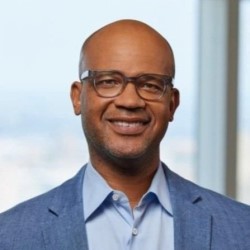 Derrell Porter, Founder and CEO
Derrell Porter, Founder and CEO
During his career as physician-executive, Dr. Derrell Porter has been a key leader in some of the most successful biopharmaceutical companies, including Amgen, AbbVie and Gilead Sciences. Porter is currently founder & CEO of Cellevolve Bio, a development and commercialization biotech focused on cell therapy. Before Cellevolve, he was chief commercial officer at Atara Bio, an off-the-shelf cell therapy company. He built the global organization including its European HQ, developed the launch strategy and branding, established multiple partnerships, and created its product delivery system. Prior to joining Atara, Porter was vice president and head of Strategy & Commercial Planning for Gilead, where he was responsible for corporate strategy, commercial planning and global launch preparation. During his tenure, he led launch preparation for eight global brands and was a key participant in Gilead’s entry into cell therapy via its acquisition of Kite Pharma.
Porter currently serves on several boards including Passage Bio (NASDAQ: PASG), a CNS focused genetic medicines company, and Portal Innovations, a Chicago-based life sciences venture development engine. Porter earned an M.D. from University of Pennsylvania’s Perelman School of Medicine, where he was a Gamble Scholar, and an MBA in health care management from The Wharton School. He earned his bachelor of science in Neuroscience from UCLA. He enjoys time with his two children, traveling, reading non-fiction, and road cycling.
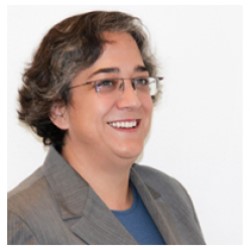 Heather Franklin, Co-founder, President and CEO
Heather Franklin, Co-founder, President and CEO
Heather Franklin is an experienced corporate executive with over 30 years of broad biotechnology expertise, including positions in research, product development, business development, strategic planning and executive management. Franklin is a co-founder, president and CEO of Blaze Bioscience. Prior to founding Blaze Bioscience, Franklin was a member of the executive management team at ZymoGenetics. Her areas of responsibility included business development, alliance management, strategic planning, portfolio management and pipeline marketing. She was the architect of the $1.1 billion deal with Bristol Myers Squibb for Interferon lambda, which at the time of execution was the largest single-molecule Phase 1 deal ever and led to ZymoGenetics’ subsequent acquisition by BMS. Franklin has designed and negotiated deals across the product development spectrum from research through commercialization.
Franklin serves on the board of directors of Xoma, a publicly traded biotech royalty aggregation company and is a member of their compensation committee. She is a member of the board of Presage Biosciences, a private oncology company that is pioneering an entirely novel approach to evaluating drug responses in clinical trials. Franklin serves on the board of Life Science Washington, the state’s life science industry association.
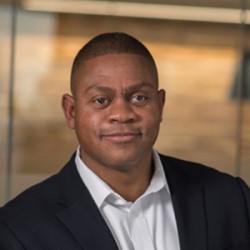 Howard Davis, Chief Operating Officer
Howard Davis, Chief Operating Officer
Howard Davis currently serves as COO of Third Harmonic Bio, an Atlas Venture-backed, clinical-stage biotech where he is responsible for corporate and business development, new product planning, and all G&A functions. Davis brings more than 20 years of biopharma industry experience to his current position, having held roles across a wide range of functions and therapeutic areas, as well as spanning early-stage entrepreneurial environments from large pharma to biotech. Before joining Third Harmonic, Davis was vice president of Corporate Development at Sophren Therapeutics, a clinical stage neuropsychiatry startup also founded by Atlas Venture. Prior to Sophren, Davis served as a principal at Flagship Pioneering, where he focused on business development across the firm’s portfolio companies, as well as supporting new company creation in the life sciences. Prior to Flagship, Davis spent five years at Biogen in roles of increasing responsibility across commercial, manufacturing, program leadership, and general management aspects of the business.
Davis began his industry career at Novartis in Basel, Switzerland, where he held a series of commercial and strategy roles within the neuroscience and ophthalmology disease franchises. Davis holds a BS in chemical engineering from Yale, as well as a PhD in biomedical engineering from the Harvard-MIT Division of Health Sciences and Technology.
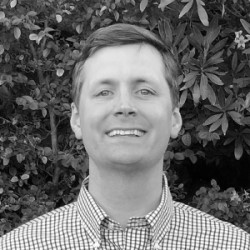 James Matthaei, Senior Scientist
James Matthaei, Senior Scientist
James Matthaei received his PhD from the University of Washington in chemical engineering. His thesis work was on the generation of an entirely new family of proteins capable of self-assembling into crystalline 2D arrays. Matthaei did his post-doctoral work at Seattle Children’s Research Institute in Dr. Michael Jensen’s Lab. He worked on universal CAR T-cell therapies using bi-specific molecules to selectively target multiple types of cancer. These therapies are advancing to clinical trials. Matthaei is a member of Sonoma’s Translational Development team in Seattle. He is working to optimize initial cell therapy products along with developing the novel technologies for our next generation of cell therapies.
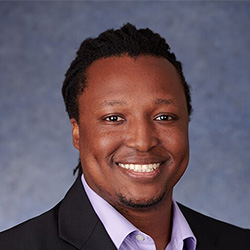 James Mutamba, Chief Business Officer
James Mutamba, Chief Business Officer
Dr. James Mutamba leads corporate strategy, business development, investor relations and finance at Arrakis. He has broad experience in company formation, strategy and growth in the biotech and life sciences industry.
Prior to joining Arrakis, Mutamba was vice president of Business and Corporate Development at Pyxis Oncology, where he was responsible for leading strategy and business development for the company culminating in a worldwide licensing agreement with Pfizer and financing transactions, including the company’s Series B financing and subsequent initial public offering. Prior to Pyxis Oncology, Mutamba was a principal at Longwood Fund, where he built and supported portfolio companies.
Previously, he was a senior associate at PureTech Health, where he was a co-founder of Commense, Inc., and was a co-founder and inventor of Glyph Biosciences and Calix Biopharma (now Orasome). Earlier in his career, Mutamba was a strategy consultant and played multiple roles in research and product development at Pathogenica, Inc., a biotech startup out of Harvard University. He received his BS in Biochemistry from University of North Carolina at Greensboro and earned his PhD from MIT in the Department of Biological Engineering and completed coursework at the MIT Sloan School of Management.
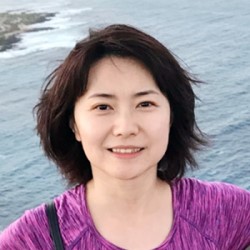 Jia Wei, Principal Scientist
Jia Wei, Principal Scientist
Jia Wei is currently a principal scientist at Sonoma Biotherapeutics with 20 years of scientific experience, including eight years of expertise in CAR T-cell engineering and therapy development in Dr. Michael Jensen’s lab at Seattle Children’s. She is the inventor of a few patents including CAR/TCR inducible synthetic promoters, a non-viral delivery system, a drug inducible system, and a therapeutic CAR construct. Prior to Children’s, she was a R&D scientist at Life Technologies (Invitrogen) and the main contributor for developing Lipofectamine 3000, a high-performance, broad-spectrum transfection reagent for a variety of cell types and lentiviral production. Wei earned her PhD degree from Georgia Institute of Technology in molecular and cell biology and had her postdoc training at the Scripps Research Institute, working on elucidating a cell signaling pathway for B cell antigen receptor editing.
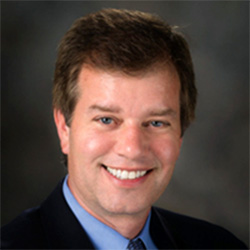 Jim Ray, PhD
Jim Ray, PhD
Jim Ray, PhD is the Director of The Belfer Neurodegeneration Consortium (BNDC), a multi-institutional collaboration whose mission is to slow, stop or reverse AD and related neurodegenerative diseases, and the Co-Director of MD Anderson’s Cancer Neuroscience Program. The NDC is a collaboration between investigators at five institutions, including MIT, Mt Sinai School of Medicine and the drug discovery center based at MD Anderson Cancer Center in Houston, TX. Prior to joining the NDC in April 2015, Dr. Ray was Director, CNS Research at Takeda Pharmaceuticals, and led several drug discovery projects from basic research into development for schizophrenia, Parkinson’s disease, autism and other CNS disorders. He joined Takeda in 2013 as part of their acquisition of the biotech start-up Envoy Therapeutics, where he was Senior Director and responsible for developing both a pipeline of CNS therapeutics as well as a platform technology. Prior to Envoy Therapeutics, Dr. Ray spent 11 years at Merck, where he led multiple research projects in Alzheimer’s disease, including MK-7622, Merck’s investigational M1 muscaranic receptor potentiator. He earned his PhD from Washington University Medical School in Neuroscience and has 62 publications and 25 patents.
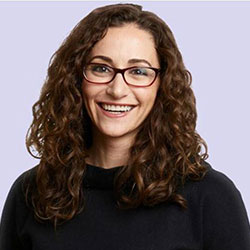 Julie Grant, General Partner
Julie Grant, General Partner
Julie Grant is a general partner at Canaan, a tech and healthcare venture capital fund with $5 billion assets under management. She leads investments and company formation efforts in biopharma and digital health companies that tangibly improve patient care. Since joining Canaan in 2013, Grant has incubated, financed, and supported investments in multiple new biopharmaceutical companies including Day One (DAWN), Nocion, Synthekine, Protagonist (PTGX), Cellular Research (acquired by Becton Dickinson), Dermira (acquired by Eli Lilly), Labrys (acquired by Teva), CytomX (CTMX), Unchained Labs (acquired by The Carlyle Group), Genome Medical, Glooko, and Truveris.
Prior to joining Canaan, Grant worked at Genentech bringing new oncology products to market in roles spanning business development, cross functional management and commercial. She holds an MBA from Stanford’s Graduate School of Business, a M.Phil. from Cambridge University in BioScience Enterprise and a BS in Molecular Biophysics and Biochemistry from Yale University.
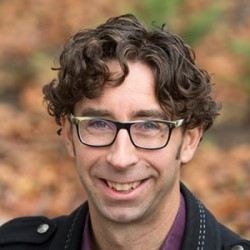 Luke Timmerman, Founder
Luke Timmerman, Founder
Luke Timmerman is an award-winning journalist who has been covering biotechnology since 2001. He stepped out on his own as founder and editor of Timmerman Report in 2015. Before founding Timmerman Report, he wrote about the industry for a regional newspaper (The Seattle Times), a global financial publication (Bloomberg News), and an online startup (Xconomy). His first book, “Hood: Trailblazer of the Genomics Age" was called a "must-read" by Forbes and named one of the "100 Best Indie Books of 2017" by Kirkus Reviews.
Timmerman was named one of the 100 Most Influential People in Biotechnology by Scientific American in 2015. He has won a number of journalism prizes, including the Scripps Howard National Journalism Award, the Gerald Loeb Award, the Association of Health Care Journalists Award, and the Society of American Business Editors and Writers (SABEW) award. Timmerman earned a bachelor’s degree in journalism from the University of Wisconsin-Madison in 1997. For the 2005-2006 academic year, he was awarded a Knight Science Journalism Fellow at MIT.
Outside of work, Timmerman enjoys running, family camping trips, and mountaineering. He reached the summit of Mt. Everest, the highest mountain in the world at 29,031 feet/8,848 meters, on May 22, 2018. As a volunteer, his biotech community mountain climbing campaigns have raised more than $4 million for cancer research and the fight against poverty. He lives in Seattle with his wife and daughter.
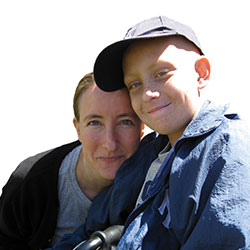 Nancy Goodman, Executive Director and Founder
Nancy Goodman, Executive Director and Founder
After the death of her ten-year-old son Jacob, to cancer, Nancy Goodman founded Kids v Cancer and successfully championed the passage of two federal laws: the pediatric priority review voucher program in 2012 and the RACE for Children Act in 2017.
The pediatric priority review voucher program creates a financial incentive for rare pediatric disease drug development – vouchers that are currently trading at around $100 million and that constitute a significant incentive.
The RACE for Children Act authorizes the FDA to direct newly developed cancer drug to have pediatric studies through phase 2 when the molecular target of the drug in development is relevant to pediatrics.
In 2022, Goodman is championing the Give Kids a Chance Act to authorize the FDA to direct newly developed cancer drugs to have pediatric studies of those drugs in combination with other cancer therapies.
Goodman was a member of the U.S. Vice President’s Blue Ribbon Pediatric Oncology Panel for the Cancer Moonshot and the National Cancer Institute Board of Scientific Counselors. Goodman and Kids v Cancer have been awarded the Fast Company Magazine as top ten most innovative nonprofits, the Peter Drucker Nonprofit Innovation Award, the American Association of Cancer Research Distinguished Advocacy Award, and the US Food and Drug Administration Group Recognition Award.
Nancy attended University of Chicago (JD) and Harvard (MPP). She resides in DC with her husband and two surviving children.
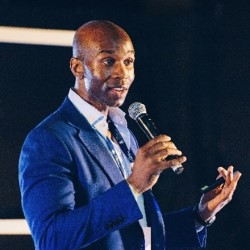 Nick Davis, President and CEO
Nick Davis, President and CEO
Theonys
Nick Davis is passionate about harnessing the power of technology to build a healthier, more sustainable world. He currently serves as president and CEO at Theonys, a biotech company he founded with Peter C. Dedon at MIT and Richard I. Gregory at Harvard, with an aim to revolutionize genomic medicine through a new understanding of how genes are turned into proteins.
Previously, Davis co-founded and served as the head of Business Development at Coagulo Medical Technologies, a medtech company that is working to expand pre- and perioperative FXa anticoagulant testing in U.S. hospitals. Davis also served in Debt/M&A Advisory at Santander Corporate & Investment Banking, and as a consultant at Flagship Pioneering. Davis earned his doctorate of science in Biological/Biosystems Engineering at the Massachusetts Institute of Technology (MIT), as well as a bachelor of science in Bioengineering (with honors) at Stanford University.
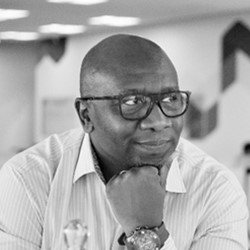 Paul Mola, President, CEO and Founder
Paul Mola, President, CEO and Founder
Paul Mola is the chief executive officer and president of Roswell Biotechnologies, Inc., and a member of the company’s board of directors. He founded Roswell in 2014, bringing more than 30 years of life science industry leadership and executive experience to the company. Roswell Biotechnologies has recently unveiled the world’s first Molecular Electronics Chip, which integrates molecules as part of nana-circuits, a platform technology poised to transform the life science industry.
Previously, Mola was head of Global Solutions at Human Longevity, Inc., working with genome sequencing pioneer Craig Venter to establish international precision medicine partnerships. Prior to that, he spent over a decade at Life Technologies / Applied Biosystems (now part of Thermo Fisher Scientific), the global leader in life science tools, and the historical market leader in DNA sequencing technology, where he was president of the Enterprise Genomic Solutions Business Unit and head of strategy and chief of staff for the Genetic Systems Division. In these roles, he managed portfolio strategy and global enterprise-scale business engagements for the entire DNA Sequencing Technology portfolio. Mola received the Life Technologies’ “Game Changer” award, the company’s highest honor for work that transforms the company.
Earlier in his career, Mola served in sales, and marketing roles at Roche. Mola is a member of the board of governors of Biocom, the San Diego State Mission Valley Innovation District Advisory Group, and the Fleet Science Center Advisory group. He holds a post-graduate degree in Biotechnology and Business.
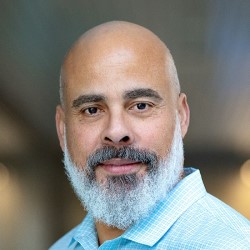 Peter Emtage, Venture Partner
Peter Emtage, Venture Partner
Peter Emtage is a venture partner with Versant Ventures. Prior to joining Versant, Emtage served as the global head of Cell Therapy Research at Kite Pharma, a Gilead company. Previous roles include chief scientific officer at Cell Design Labs Inc. (CDL), which was acquired by Gilead, and vice president of Immune Mediated Therapy in the Oncology Innovative Medicines group at MedImmune. He has over 25 years of drug development experience in the fields of oncology, autoimmunity, infectious diseases and inflammation.
Emtage holds a BS and MS in molecular biology and genetics from the University of Guelph and received his PhD in molecular virology, immunology and inflammation at McMaster University. At the beginning of his career, Emtage did a post-doctoral fellowship at the National Cancer Institute and held roles at Aventis Pasteur and Harvard Medical School.
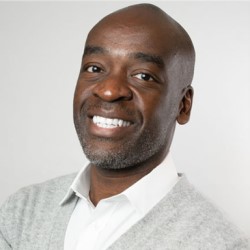 Peter Olagunju, Chief Technical Officer
Peter Olagunju, Chief Technical Officer
Peter Olagunju serves as the chief technical officer of TCR². He brings over 20 years of experience in cell and gene therapy, clinical development, program management, manufacturing and technical operations. Prior to joining the company, he was senior vice president of Technical Operations at FerGene Inc., where he led the technical operations function for the commercialization of a gene therapy for bladder cancer. Before that, Olagunju was vice president of Global Patient Operations at bluebird bio, Inc., where he held several roles of increasing responsibility and was the program lead and functional head of manufacturing supporting the European approval for ZYNTEGLO®, a transformational gene therapy for transfusion dependent thalassemia. Earlier in his career, he held senior positions in commercial technical operations and served as the head of quality at Dendreon Corp. and ZymoGenetics, Inc. Olagunju holds an MBA from the University of Washington and a BS in Biology from the University of Illinois at Urbana-Champaign.
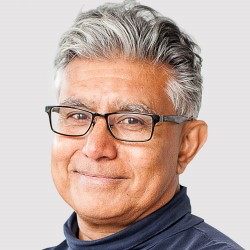 Raj Chopra, Head of Oncology and Venture Partner
Raj Chopra, Head of Oncology and Venture Partner
Raj Chopra is head of oncology and a venture partner at Apple Tree Partners. At The Institute of Cancer Research in London, as director of the Cancer Research UK Cancer Therapeutics Unit, he led one of the largest academic drug discovery groups in the world and focused on targeted protein degradation and complex 3D cell culture models.
Chopra also worked at Celgene from 2009 to 2016 as corporate vice president of Translational and Early Drug Development, leading an international team of more than 100 scientists. Before joining Celgene, he held leadership positions in AstraZeneca’s Oncology Therapeutics group in the UK and US. Chopra started his academic career as the director of Hematological Oncology at Christie Hospital and was group leader at the Paterson Institute of Cancer Research, both located in Manchester, UK. He was a non-executive director of Artios Pharma, established to develop a next-generation DNA damage response target pipeline of cancer therapeutics, and co-founder of Monté Rosa Therapeutics, a biotech focused on targeted protein degradation.
Chopra trained in medicine at University College London, where he earned his PhD in medicine, cell and molecular biology. He is a fellow of the Royal College of Physicians of London, the Royal College of Pathologists, and the Royal Society of Biology.
 Shobha Parthasarthi, Vice President for External Innovation & New Ventures
Shobha Parthasarthi, Vice President for External Innovation & New Ventures
Shobha Parthasarthi brings a combination of 20+ years of research, business development, strategic partnerships and venture investing experience. She has enabled progression of over 50+ early-stage companies that have generated greater than $6 billion in follow on investments from public and private sources. Her career highlights include funding startups that have led to FDA drug approvals/marketed products, company acquisitions and IPO exits. She currently leads identifying investment opportunities for Xontogeny and the Perceptive Xontogeny Venture (PXV) Fund. She mentors startup companies and serves on boards of several academic institutions and life sciences accelerators.
Prior to Xontogeny, as vice president at Harrington Discovery Institute, she managed business development, strategic alliances and startup investments. Previously, at the North Carolina Biotechnology Center, she managed a portfolio of startups developing therapeutics, diagnostics and medical devices. She holds PhD in molecular genetics and Microbiology and began her career as a research scientist in drug discovery at Takeda (Millennium Pharmaceuticals).
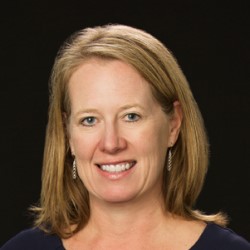 Sonya Erickson, Partner
Sonya Erickson, Partner
Sonya Erickson is a member of the firm's board of directors. She has over 30 years of experience counseling emerging growth companies, established technology businesses and venture capital funds. Her clients range from early-stage startups to larger public companies.
Erickson advises clients on a variety of legal and business issues. Her particular expertise is in private and public financing, strategic technology transactions and mergers and acquisitions. Erickson is counsel to public and private companies in a broad range of industries, with a focus on the software, biotechnology and medical products and services industries. In the last 10 years alone, Erickson has worked on more than 500 venture capital and private equity transactions, as well as numerous public offerings, M&A structured buyouts, spin-offs and other complex business transactions.
Prior to joining Cooley, she was a shareholder at Heller Ehrman and a director and one of the founding members of the Seattle office of the Venture Law Group (VLG) before the merger with Heller Ehrman. Prior to that, Erickson was an associate and VLG in Menlo Park, Brobeck, Phleger & Harrison in Palo Alto and Jones Day in Los Angeles.
Erickson is listed in The Best Lawyers in America in the category of Venture Capital Law since 2004, is listed as a leading attorney in Chambers USA: America's Leading Lawyers for Business, Corporate/M&A since 2013, and listed in Washington Super Lawyers from 2014 to 2018.
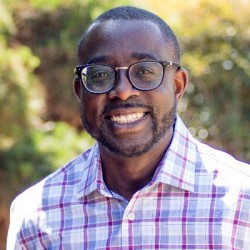 Taryell Simons, HR Services Manager for Equity, Diversity and Inclusion Divisions
Taryell Simons, HR Services Manager for Equity, Diversity and Inclusion Divisions
County of San Diego
Taryell Simons is an HR services manager for the Equity Diversity and Inclusion Divisions in the County of San Diego. After working in workforce development programming for over eight years, he became more involved in D&I efforts to help bring diversity to education, community programs and the tech startup ecosystem.
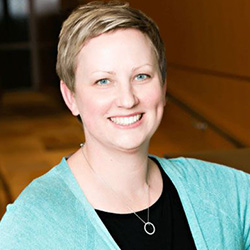 Tina Albertson, CMO and Head of Development
Tina Albertson, CMO and Head of Development
Dr. Tina Albertson is currently the chief medical officer and head of development at Lyell Immunopharma. Prior to Lyell, Albertson served as vice president of Global Drug Development at Juno Therapeutics, a Bristol Myers Squibb company, developing CAR T-cell therapies. Prior to Juno, Albertson served as medical director at Seagen, developing antibody-drug conjugates against solid and hematologic tumors. She is a pediatric oncologist by training and practiced at Seattle Children's Hospital. Albertson received a PhD in cancer biology from University of Washington, an MD from Stanford University, and a BS in biology from University of Oregon.
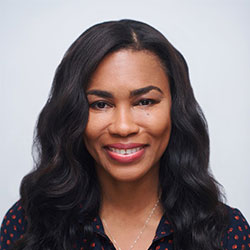 Uciane Scarlett, Principal
Uciane Scarlett, Principal
Uciane Scarlett is a principal and responsible for investment identification, due diligence, business development and new company creation activities at MPM Capital. Prior to joining MPM, Scarlett was a principal at Oxford Sciences Enterprise (OSE, UK), where she co-led the life science sector and built or led investments for companies including, T-Cypher Bio, Alethiomics, and PepGen. Scarlett was on the investment team at Atlas Venture, where she supported financings for Dyne Therapeutics (DYN) and Quench Bio, and served in operational roles for AVROBIO (AVRO) and KorroBio. Scarlett was the director of BD & Strategy at Compass Therapeutics prior to Atlas and was most recently sworn in on the board of directors for the Massachusetts Life Sciences Center. Scarlett holds a PhD in cancer immunology from Dartmouth College.
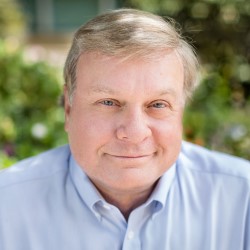 Vern Norviel, Partner
Vern Norviel, Partner
Vern Norviel is a partner at Wilson Sonsini Goodrich & Rosati and a senior practitioner in the firm's patents and innovations counseling practice. Norviel has three decades of experience formulating successful strategies for life science companies and helping them develop IP programs. He represents a wide variety of companies, as well as venture capital firms, in areas such as therapeutics, diagnostics, nanotechnology, genomics, proteomics, and personalized medicine. In fact, Norviel's interest in the field of personalized medicine prompted him to become the first attorney to have had his or her entire genome sequenced and made available in a public database.
Before joining the firm in 2003, Norviel was the general counsel and corporate secretary of Perlegen Sciences, Inc., a start-up biotechnology company that scans the entire human genome for important therapeutic and diagnostic products. Previously, as senior vice president and general counsel, he was an early employee of Affymetrix, the biotechnology company that pioneered and developed DNA chip technology. He also had been a partner at Townsend and Townsend and Crew in Palo Alto.
During his career, Norviel has authored or prosecuted dozens of patents that have been litigated in the U.S. and abroad and has overseen intellectual property lawsuits throughout the world. Norviel previously served as a member of Wilson Sonsini's board of directors and currently serves on the board of the Wilson Sonsini Foundation. In addition, he is a lecturer in biotechnology law at UC Berkeley School of Law.
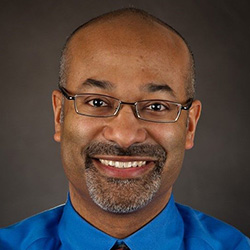 William Hobbs, Vice President of Clinical Development - Hematology
William Hobbs, Vice President of Clinical Development - Hematology
Dr. William Hobbs leads the development of novel therapies for hematology disease indications, including cell and gene therapy programs such as the CRISPR-Cas9 gene editing programs in clinical development for sickle cell disease and beta-thalassemia. Hobbs is a hematologist, he and has had experiences as an academic physician-scientist as well as an executive leader in the pharmaceutical industry.
In industry, Hobbs has been involved in clinical development for a number of hematology programs and has had experiences at large pharmaceutical companies as well as smaller biotech companies. Hobbs has led multiple hematology programs including for the approved products Eloctate and Alprolix for hemophilia A and hemophilia B, respectively, as well as Enjaymo for cold agglutinin disease. Hobbs was most recently the global program head for Complement Biology Development at Sanofi, leading multiple programs across a variety of hematology and non-hematology indications. Prior to that, Hobbs had roles of increasing responsibilities at Biogen and Bioverativ. Hobbs received his MD and PhD at the University of Pittsburgh, where his PhD studies focused on the regulation of viral gene expression in context of virus: host interactions important for gene therapy vector development.
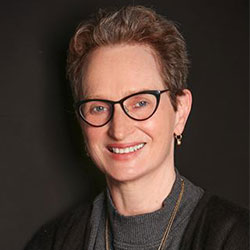 Yael Weiss, CEO
Yael Weiss, CEO
Mahzi Therapeutics
Dr. Yael Weiss completed her MD PhD at Hadassah Medical School at the Hebrew University in Jerusalem. She has over 20 years of industry experience in medical/clinical and business development roles at Genzyme, Merck and Ultragenyx. Weiss is the CEO of and founded Mahzi Therapeutics in 2020 to bring therapies to patients with underdiagnosed rare genetic neurodevelopmental disorders. Mahzi works closely with patient foundations to support their journey toward drug development and bring programs into Mahzi once pre-clinical proof of concept is established. Throughout her career, Weiss has mentored and guided bio entrepreneurs in their journey, taking scientific inventions from bench to bedside.
Rhoda Altom, MBA
Rhoda Altom served as a member on the Seattle Children’s Hospital Board for 14 years working on the startup of the Seattle Cancer Care Alliance and the Seattle Children’s Research Institute. She is the Board Chair of the National Park Foundation and a founder of the National Park Foundation’s National Council, Pediatric Brain Tumor Research Fund. She is also the President of Milestone Properties and on the Board of Directors for the National Park Foundation, Frye Art Museum and The Center for Native American Youth. Altom is an experienced President with a demonstrated history of working in the Real Estate industry. She is skilled in real estate development, brokerage, dispositions, renovation, banking and working with tenants. As an Emeritus Board Member for the Washington Women’s Foundation, Altom works to empower women by educating them on informed giving while learning about community needs. Altom earned her MBA in Business Administration and Management from the University of Washington – Michael G. Foster School of Business; and an Engineer’s Degree in Construction Engineering from Washington State University.
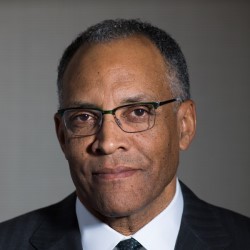 Stephen Graham, JD
Stephen Graham, JD
Stephen Graham practiced corporate and securities law for several decades as a partner at the major law firms of Perkins Coie LLP, Orrick LLP and Fenwick & West LLP until his retirement from the practice in 2022. Currently, he is chairman of the board of directors of Washington Federal Bank, the largest bank headquartered in Washington state. He also serves on the board of directors of the Fred Hutchinson Cancer Center, the Institute for Systems Biology and the National Board of Friends of the Children, where he is vice chairman.
In 2019, Graham was appointed to the Securities and Exchange Commission’s Advisory Committee on Small Business Capital Formation and co-chaired the Securities and Exchange Commission’s Advisory Committee on Small and Emerging Companies from 2011 to 2017. He is a “Super Lawyer” recipient, 2000 – 2021. Graham focuses much of his time on mentoring youth and young professionals. Graham received his BS from Iowa State University and his J.D. from the Yale University School of Law.
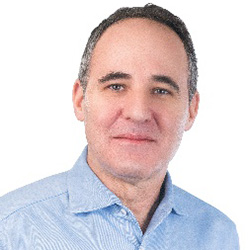 Robert Hershberg, PhD, MD
Robert Hershberg, PhD, MD
Dr. Robert Hershberg is the CEO, President, and Chair of the Board of HilleVax, Inc., a biopharmaceutical company focused on the development and commercialization of novel vaccine candidates.
Hershberg is also a Venture Partner at Frazier Healthcare Partners where he has been working with the firm’s portfolio companies as an advisor for over ten years.
Hershberg currently serves as a clinical faculty member at the University of Washington School of Medicine and is a member of the board of directors of Adaptive Biotechnologies, NanoString Technologies, Silverback Therapeutics and Recursion Pharmaceuticals.
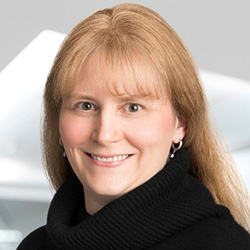 Melanie Mayer, PhD
Melanie Mayer, PhD
Dr. Melanie Mayer’s strong technical background and commitment to client’s business objectives help inform her strategy in high-stakes intellectual property disputes. With a PhD in molecular biology and genetics, and an undergraduate degree in biochemistry, one of Mayer’s essential differentiators as a litigator is her ability to understand her client’s technology at a sophisticated level, and to distill those complex technical issues into compelling arguments before a judge or jury. Her practice encompasses intellectual property litigation and dispute resolution, including patent infringement and licensing disputes.
Mayer has a strong record of success in the courtroom and serves as the diversity lead in Fenwick’s Seattle office. She is involved in efforts to encourage more women lawyers to pursue careers in IP litigation and advocates for programs that can advance the retention and professional development of women attorneys, such as meaningful mentorships and flex time.
 Tony Miles, JD
Tony Miles, JD
Tony Miles is a senior executive with a track record of teamwork, tenacity, in-depth analysis, and creative problem solving who serves as Chief Legal Officer for Radia Inc., P.S.. Leveraging nearly 25 years’ experience as a health care corporate, transactional and regulatory attorney, Tony collaborates with other domain experts and organizational leaders to advance strategic objectives and manage operational risks. With an emphasis on contracting, compliance, technology licensing, and practice combinations, he leads a team that enhances Radia’s ability to deliver patient-centered care and develop and deploy patient-centered technology. Prior to joining Radia, Tony was a partner and practice group leader at Stoel Rives LLP and, before that, at K&L Gates LLP. He is Trustee and former Board Chair of ArtsFund and is a graduate of Yale College and the University of Michigan Law School.
Clinical mentors
Each Invent at Seattle Children’s scholar will have the opportunity to have a clinical mentor with deep experience in the disease that is central to the scholar’s research. Ideally, clinical mentors will help the scholar connect with colleagues regarding tissue bank resources, clinical trial networks, and preclinical models. Clinical mentors will help scholars understand current standard of care, emerging therapeutics that are in clinical development, unmet medical needs for patients, and which therapeutic modalities would or would not be acceptable to families. In some cases, clinical mentors may help arrange clinic shadowing opportunities or participation in discussions with patient families outside the hospital setting (for example, advocacy summits).
Clinical mentors will typically be recruited from the more than 1,200 pediatricians and pediatric specialists in the Seattle Children’s network.
